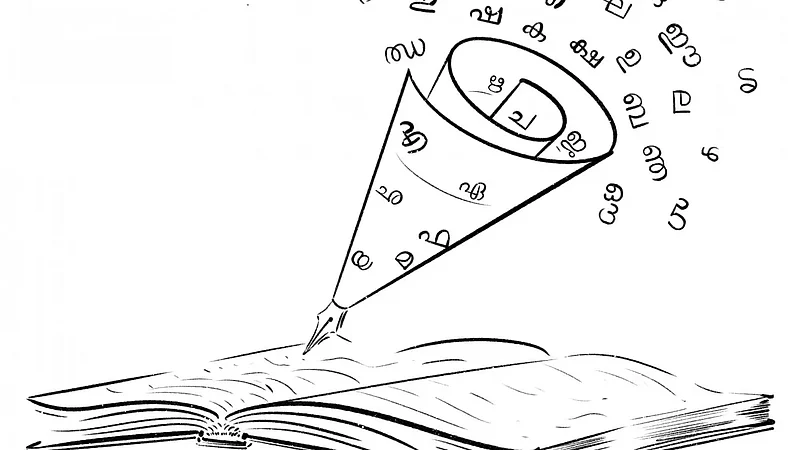Not to be hyperbolic but it certainly feels like we are living in the Golden Age of translated Malayalam literature. The signs point that way. In 2020, Malayalam author S Hareesh shared the prestigious JCB Prize for Literature with his translator Jayasree Kalathil, for his novel Moustache. This was the first debut translation to be longlisted for the Prize. In 2021, the JCB longlist featured three works of translations from Malayalam: Anti-Clock by V J James (trans. Ministhy S), Delhi: A Soliloquy by M Mukundan (trans. Fathima E V and Nandakumar K), and The Man Who Learnt to Fly but Could Not Land by Thachom Poyil Rajeevan (trans. P J Mathew). Mukundan and his translators won the Prize that year.
The 2022 shortlist featured Valli: A Novel by Sheela Tomy, translated from Malayalam by Kalathil. Valli also made it to the longlist of the National Translation Awards in Poetry and Prose 2023, administered by The American Literary Translators Association. Kalathil’s translation of N Prabhakaran's Diary of a Malayali Madman, which was longlisted for the Mathrubhumi Book of the Year Award, received the Crossword Book Award for Indian Language Translation in 2019. And so the saga continues…
Harper Perennial, India's first dedicated imprint for translations, has published a number of translated works from Malayalam, including Assassin by K R Meera (trans. J Devika) S Hareesh’s Moustache and Valli by Tomy, introducing them to a wider readership across India and the Indian diaspora. Feminist historian J Devika has translated the literary works of several contemporary Malayalam writers such as Sarah Joseph, Unni R, Ambikasutan Mangad, Shihabuddin Poithumkadavu, and pioneering writers like Lalithambika Antharjanam. Penguin India acquired three of James’ landmark novels for translation (trans. Ministhy S), including Nireeswaran (published in 2014 in Malayalam), which received the Kerala Sahitya Akademi Award, Vayalar Award and the Basheer Puraskaram.
The Book of Exodus and Dattapaharam are the remaining two. Also on the publisher’s list is K R Meera’s Hangwoman (trans. J Devika), first published in 2012 in Malayalam as Aarachaar. It received the Kendra Sahitya Akademi Award in 2015. N S Madhavan whose experimental, unsettling style has won him die-hard Malayali fans, is a familiar name to English readers now, thanks to a clutch of meticulous translations.
Westland imprint Eka, set up to bring out translations from Indian languages, has published memorable translations of the works of many Malayalam writers, including The Lesbian Cow and Other Stories by Indu Menon (trans. Nandakumar K), Unni R’s One Hell of a Lover (trans. J Devika) and K R Meera’s novella Qabar (trans. Nisha Susan), among others.
Readers have welcomed these translations to their bookshelves warmly. Whether their style is quirky, post-modern and experimental or structured along more conventional lines, whether they are award winners who have a loyal following among the reading public of Kerala or relatively unknown emerging authors, many Indian publishers are keen to publish them in translation. There is a healthy appetite for their writing, and publishers caught on at the right moment. The works of writers like Takazhi Sivashankara Pillai, Kamala Das, Basheer, and M T Vasudevan Nair were already available to the English reader since their works were often part of the college and university syllabus. But it’s not just literary stars like these who are now reaching out to readers through their translated works.
One of the major catalysts of the project of translating Malayalam works—from across the years—is Mini Krishnan former translations editor, Oxford University Press (India). As consultant editor, the translation programme, Thunchath Ezhuthachan Malayalam University, she helmed the publication of two comprehensive anthologies on Malayalam literature—The Oxford India Anthology of Malayalam Dalit Writing and The Oxford India Anthology of Modern Malayalam Literature. Her passion for the translation project also opened up a wider readership for several Malayali writers.
It’s not just contemporary writers who are at arm’s length for English readers. Translations of pre-independence writings like O Chandumenon’s Indulekha (considered the first significant Malayalam novel), C V Raman Pillai’s masterpiece Marthandavarma, the first historical novel in a South Indian language, and Kunjambu’s Saraswathy Vijayam which focused on marginalized lives in Kerala are all available in English translation. Post-independence novels such as P Kesava Dev’s heavily symbolic novel Arku Vendi?, Takazhi’s evergreen romance Chemmeen, many of S K Pottekatt’s memorable works, Uroob’s domestic novels, and the books of prominent ‘pravasi’ writers such as O V Vijayan, Kakkanadan and Anand’s available in translation.
There is an abundance of riches out there in terms of translated works from Malayalam. The future looks bright and publishers are all set to give a new life to many works waiting in the wings.























